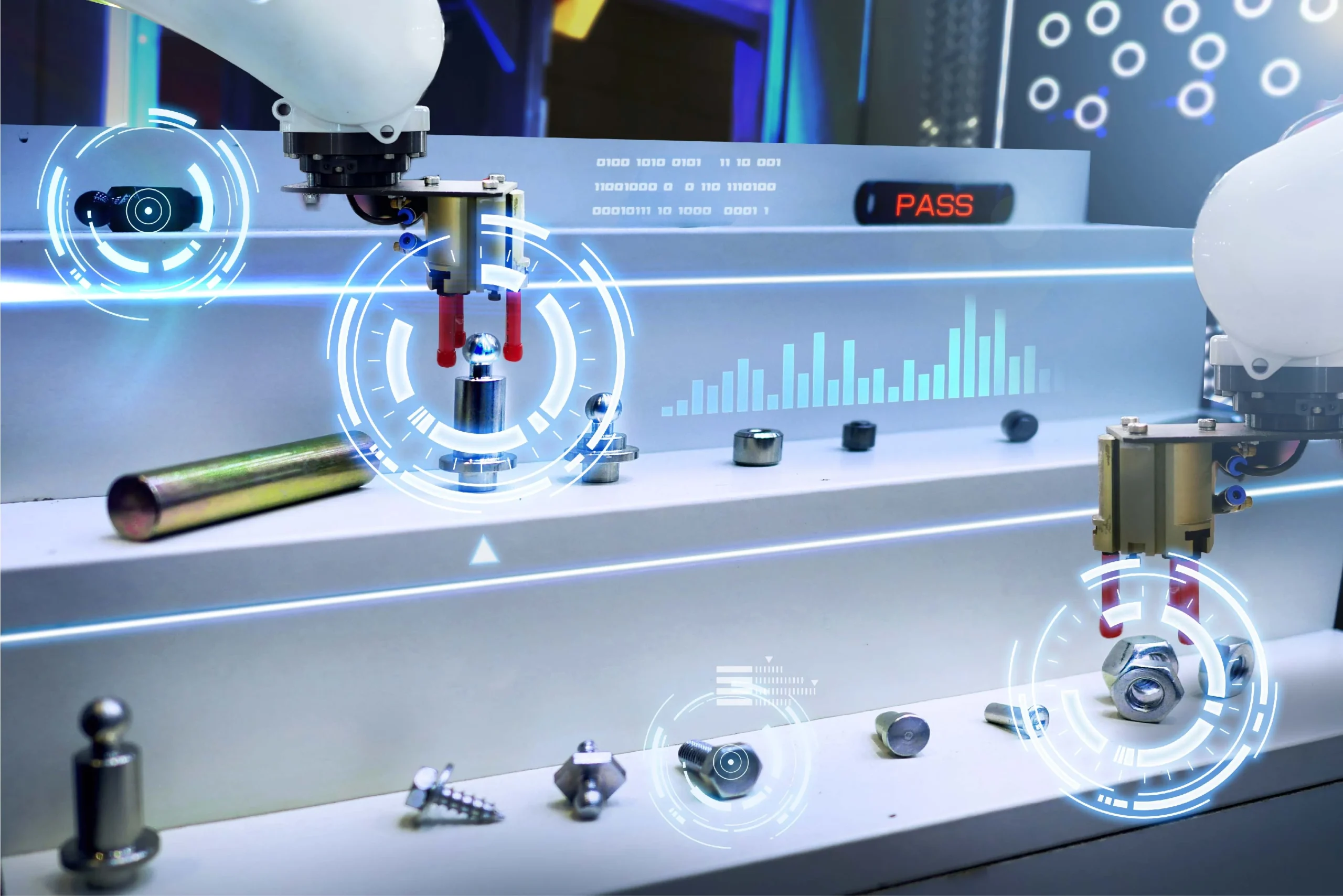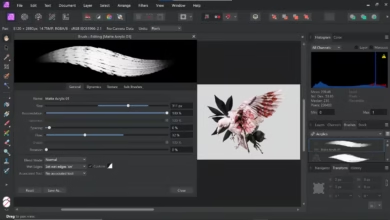AI Software Development Tools Every Programmer Should Use
Discover the best AI software development tools in 2025. GitHub Copilot to Cursor IDE, boost your programming productivity with these essential

The landscape of software development has been revolutionized by the emergence of AI software development tools that are transforming how programmers write, debug, and optimize code. In 2025, artificial intelligence programming tools will have become indispensable assets for developers seeking to enhance productivity, reduce errors, and accelerate project delivery. These innovative solutions leverage machine learning algorithms and natural language processing to understand code context, suggest improvements, and automate repetitive tasks that traditionally consume valuable development time.
Modern AI coding assistants have evolved far beyond simple auto-completion features, offering sophisticated capabilities such as intelligent code generation, real-time error detection, automated documentation, and even complete application scaffolding. Whether you’re a seasoned developer working on enterprise applications or a beginner learning your first programming language, AI Software Development Tools can significantly streamline your workflow and improve code quality.
The adoption of AI-powered coding tools has surged dramatically, with studies showing that developers using these technologies can increase their productivity by up to 55%. Major tech companies like Microsoft, Google, and OpenAI have invested billions in developing cutting-edge machine learning development tools that integrate seamlessly with popular IDEs and development environments. From intelligent code completion to automated testing frameworks, these tools are reshaping the entire software development lifecycle.
This comprehensive guide explores the most effective AI software development tools available in 2025, examining their key features, pricing models, and practical applications. We’ll delve into specialized categories, including AI code generators, automated debugging tools, and AI-driven project management solutions that every programmer should consider integrating into their development stack. By understanding the capabilities and limitations of these tools, developers can make informed decisions about which technologies will best serve their specific needs and development goals.
Essential AI Code Generation Tools
GitHub Copilot: The Industry Leader
GitHub Copilot remains the most widely adopted AI coding assistant in the development community, powered by OpenAI’s advanced language models. This revolutionary tool integrates directly into popular code editors like Visual Studio Code, providing intelligent code completion and entire function generation based on natural language comments. The platform supports over 30 programming languages and can generate complex algorithms, database queries, and even complete application components with remarkable accuracy.
The tool’s strength lies in its ability to understand context from existing codebases, making suggestions that align with established coding patterns and architectural decisions. GitHub Copilot excels at generating boilerplate code, API integrations, and unit tests, significantly reducing AI Software Development Tools time for routine programming tasks. With its recent updates, the tool now offers improved multi-line suggestions and a better understanding of project-specific requirements.
For enterprise users, GitHub Copilot for Business provides additional features, including advanced security scanning, compliance monitoring, and organization-wide usage analytics. The tool’s pricing starts at $10 per month for individual developers and $19 per month for business users, making it an accessible investment for most development teams.
OpenAI Codex and ChatGPT for Programming
OpenAI Codex, the foundation model behind GitHub Copilot, represents a significant advancement in AI code generation technology. Developers can access Codex directly through the OpenAI API, enabling custom integrations and specialized applications. The model demonstrates exceptional proficiency in translating natural language descriptions into functional code across multiple programming languages.
ChatGPT has emerged as a versatile AI programming tool for developers seeking interactive coding assistance. The conversational interface allows programmers to describe complex problems, request code reviews, and receive detailed explanations of programming concepts. Advanced users leverage ChatGPT for architectural planning, debugging assistance, and learning new technologies through guided tutorials.
The integration of ChatGPT with development workflows has become increasingly sophisticated, with many developers creating custom prompts and templates for specific coding tasks. The tool’s ability to explain code logic, suggest optimizations, and provide alternative implementation approaches makes it invaluable for both novice and experienced programmers.
Advanced AI-Powered IDEs and Editors
Cursor IDE: The Future of Code Editing
Cursor IDE has gained significant traction as the most advanced AI-integrated development environment available in 2025. Built from the ground up with artificial intelligence at its core, Cursor offers seamless AI code assistance that goes beyond traditional auto-completion. The IDE features natural language editing capabilities, allowing developers to describe desired changes in plain English and watch as the AI implements the modifications automatically.
The platform’s AI pair programming feature enables real-time collaboration between developers and AI, creating a synergistic workflow that enhances both productivity and code quality. Cursor IDE supports advanced debugging with AI-powered error analysis, providing detailed explanations of issues and suggesting multiple resolution strategies. The tool’s ability to understand entire project contexts makes it exceptionally effective for large-scale applications.
Cursor IDE integrates with popular version control systems and offers robust extension support, ensuring compatibility with existing development workflows. The IDE’s subscription model starts at $20 per month, positioning it as a premium solution for professional developers seeking cutting-edge AI Software Development Tools.
Replit Ghostwriter: Cloud-Based AI Coding
Replit Ghostwriter represents the evolution of cloud-based development environments enhanced with artificial intelligence programming tools. The platform combines collaborative coding features with sophisticated AI assistance, enabling teams to work together while benefiting from intelligent code suggestions and automated optimization. Ghostwriter excels at understanding project requirements and generating appropriate code snippets that align with established patterns.
The tool’s strength lies in its ability to handle multiple programming languages simultaneously, making it ideal for full-stack development projects. Replit Ghostwriter offers real-time code analysis, suggesting improvements for performance, security, and maintainability. The platform’s integrated deployment capabilities allow developers to test and deploy AI-generated code seamlessly.
Educational institutions have particularly embraced Replit Ghostwriter for its ability to provide personalized coding assistance to students, explaining concepts and guiding them through problem-solving processes. The tool’s pricing tiers accommodate individual developers, educational users, and enterprise teams with varying feature sets and usage limits.
Specialized AI Testing and Quality Assurance Tools

Testim and AI-Driven Test Automation
AI-powered testing tools have revolutionized quality assurance processes, with Testim leading the charge in intelligent test automation. The platform uses machine learning algorithms to create, maintain, and execute test cases with minimal human intervention. Testim’s AI engine can automatically adapt to application changes, reducing test maintenance overhead and improving test reliability.
The tool’s smart locators feature uses AI to identify web elements more reliably than traditional CSS or XPath selectors, making tests more resilient to UI changes. Testim can generate test scripts from recorded user interactions and optimize test execution based on historical data and risk analysis. The platform supports both web and mobile application testing, providing comprehensive coverage for modern development projects.
AI test generation capabilities in Testim analyze application behavior patterns and user workflows to suggest additional test scenarios that human testers might overlook. The tool’s integration with CI/CD pipelines ensures that automated testing becomes an integral part of the AI Software Development Tools lifecycle, catching issues early and reducing deployment risks.
Mabl: Machine Learning for QA
Mabl represents the next generation of AI quality assurance tools, leveraging machine learning to provide intelligent test automation that learns from application behavior over time. The platform automatically discovers changes in applications and adjusts test strategies accordingly, reducing false positives and improving test accuracy. Mabl’s AI engine can predict which areas of an application are most likely to contain bugs based on code changes and historical data.
The tool’s visual regression testing capabilities use computer vision to detect unintended UI changes, ensuring consistent user experiences across different browsers and devices. Mabl provides detailed insights into application performance, user journey analytics, and accessibility compliance, making it a comprehensive solution for modern quality assurance requirements.
Auto-healing functionality in Mabl automatically repairs broken test scripts when application elements change, significantly reducing test maintenance efforts. The platform’s cloud-based architecture enables parallel test execution and provides scalable testing resources that adapt to project requirements.
AI-Enhanced Project Management and Documentation
Linear and Intelligent Project Tracking
Linear has integrated AI project management capabilities that transform how development teams plan, track, and execute software projects. The platform’s AI engine analyzes project patterns, team velocity, and historical data to provide accurate project estimates and identify potential bottlenecks before they impact delivery schedules. Linear’s intelligent prioritization algorithms help product managers make data-driven decisions about feature AI, Software Development Tools, and resource allocation.
The tool’s automated issue classification uses natural language processing to categorize and route bug reports and feature requests to appropriate team members. Linear can predict project completion dates with increasing accuracy as it learns from team behavior patterns and development cycles. The platform’s integration with popular development tools creates a seamless workflow from project planning to code deployment.
AI-powered sprint planning in Linear considers team capacity, technical complexity, and dependencies to optimize sprint compositions. The tool provides real-time insights into team productivity and suggests adjustments to improve delivery predictability and team satisfaction.
Notion AI for Development Documentation
Notion AI has become an indispensable tool for creating and maintaining technical documentation that evolves with development projects. The platform’s AI writing assistant can generate API documentation, user guides, and technical specifications from code comments and project descriptions. Notion AI excels at creating comprehensive documentation that remains current and accessible to both technical and non-technical stakeholders.
The tool’s content optimization features analyze documentation for clarity, completeness, and technical accuracy, suggesting improvements that enhance reader comprehension. Notion AI can automatically generate code examples, troubleshooting guides, and frequently asked questions based on project requirements and user feedback patterns.
Collaborative documentation workflows in Notion AI enable AI Software Development Tools teams to maintain living documents that update automatically as projects evolve. The platform’s integration capabilities allow documentation to sync with code repositories, ensuring that technical specifications remain aligned with actual implementation.
Code Review and Security AI Tools
CodeRabbit: Intelligent Code Review
CodeRabbit represents a breakthrough in AI-powered code review technology, providing automated analysis that rivals human expertise in identifying potential issues, security vulnerabilities, and optimization opportunities. The platform’s machine learning models have been trained on millions of code reviews, enabling it to provide contextually relevant feedback that improves code quality while reducing review time.
The tool’s smart suggestions go beyond identifying problems to propose specific solutions and best practices that align with project coding standards. CodeRabbit can detect complex issues such as race conditions, memory leaks, and architectural anti-patterns that might be missed during manual reviews. The platform supports multiple programming languages and integrates seamlessly with popular version control systems.
Security-focused analysis in CodeRabbit identifies potential vulnerabilities and suggests remediation strategies based on current threat landscapes and industry best practices. The tool’s learning capabilities mean that it becomes more effective over time as it analyzes project-specific patterns and coding styles.
Snyk: AI-Driven Security Analysis
Snyk has evolved into a comprehensive AI security platform that provides real-time vulnerability detection and automated remediation for modern development workflows. The platform’s AI engine continuously monitors open-source dependencies, container images, and infrastructure configurations to identify security risks before they reach production environments.
The tool’s intelligent prioritization system uses machine learning to assess vulnerability severity based on actual exploit potential rather than theoretical risk scores. Snyk provides automated pull requests with security fixes, including detailed explanations of vulnerabilities and recommended solutions. The platform’s integration with CI/CD pipelines ensures that security becomes an integral part of the development process.
Behavioral analysis capabilities in Snyk can detect anomalous code patterns that might indicate security issues or malicious modifications. The tool’s comprehensive reporting features provide security teams with actionable insights and compliance documentation required for enterprise environments.
Data Science and Machine Learning Development Tools
Jupyter AI: Enhanced Notebook Experience
Jupyter AI transforms the traditional data science workflow by integrating advanced AI assistance directly into notebook environments. The platform enables data scientists to generate code cells, create visualizations, and perform complex analyses using natural language commands. Jupyter AI understands data context and can suggest appropriate statistical methods and machine learning algorithms based on dataset characteristics.
The tool’s code explanation features help team members understand complex analytical workflows, making collaboration more effective across different skill levels. Jupyter AI can automatically generate documentation for experiments, including methodology descriptions and result interpretations that facilitate reproducible research practices.
Model optimization capabilities in Jupyter AI analyze machine learning pipelines and suggest improvements for performance, accuracy, and resource utilization. The platform’s integration with popular data science libraries ensures that AI assistance remains relevant and practically applicable to real-world projects.
AutoML Platforms and AI Model Development
Modern AutoML platforms have democratized machine learning development by providing AI-powered model creation tools that require minimal manual configuration. These platforms use meta-learning algorithms to automatically select optimal algorithms, hyperparameters, and feature engineering techniques based on dataset characteristics and problem requirements.
Automated feature engineering capabilities in AutoML tools can discover complex patterns and relationships in data that might be overlooked by human analysts. The platforms provide comprehensive model evaluation metrics and generate detailed explanations of model behavior, enabling data scientists to understand and validate AI-generated solutions.
Model deployment automation in AutoML platforms streamlines the transition from experimentation to production, providing scalable serving infrastructure and monitoring capabilities. These tools integrate with existing MLOps workflows and provide governance features required for enterprise machine learning applications.
Database and API AI Software Development Tools
AI-Powered Database Query Optimization
AI database tools have revolutionized how developers interact with complex database systems, providing intelligent query generation and optimization capabilities that improve application performance. These tools analyze database schemas, usage patterns, and performance metrics to suggest optimal query structures and indexing strategies.
Natural language to SQL conversion capabilities enable developers to generate complex database queries using plain English descriptions. The AI engines understand table relationships, data types, and business logic constraints to produce accurate and efficient SQL statements. Advanced platforms can optimize queries for specific database engines and provide alternative approaches for different performance requirements.
Database performance monitoring AI tools continuously analyze query execution patterns and identify optimization opportunities in real-time. These solutions can predict performance bottlenecks and suggest proactive measures to maintain optimal database performance as applications scale.
API Development and Documentation AI
AI-powered API development tools streamline the creation, testing, and documentation of web services that form the backbone of modern applications. These platforms can generate API endpoints from natural language descriptions, create comprehensive test suites, and maintain up-to-date documentation that evolves with API changes.
Intelligent API design tools analyze existing APIs and industry best practices to suggest optimal endpoint structures, data models, and authentication patterns. The AI engines can identify potential security vulnerabilities and suggest compliance improvements based on current standards and regulations.
Automated API testing capabilities generate comprehensive test cases that cover edge cases and error conditions that might be overlooked during manual testing. These tools can simulate various load conditions and analyze API behavior under stress to ensure reliable performance in production environments.
Mobile App Development AI Tools

AI-Enhanced Mobile Development Platforms
The mobile development landscape has been transformed by AI mobile development tools that accelerate app creation while ensuring high-quality user experiences. These platforms provide intelligent code generation for both iOS and Android applications, handling platform-specific optimizations and UI guidelines automatically.
Cross-platform AI development tools can generate native code for multiple AI Software Development Tools from a single specification, reducing development time and maintenance overhead. The AI engines understand platform conventions and can adapt user interfaces to provide optimal experiences on different devices and screen sizes.
App performance optimization AI analyzes user interaction patterns and device capabilities to suggest improvements for battery life, memory usage, and responsive design. These tools can predict user behavior and pre-load content or features to improve perceived performance and user satisfaction.
DevOps and Deployment AI Solutions
Intelligent CI/CD Pipeline Management
AI DevOps tools have revolutionized continuous integration and deployment processes by providing intelligent automation that adapts to project requirements and team workflows. These platforms analyze build patterns, test results, and deployment metrics to optimize pipeline efficiency and reliability.
Predictive build analysis can identify potential build failures before they occur, suggesting preemptive fixes and resource adjustments. AI engines monitor deployment patterns and can automatically scale infrastructure resources based on anticipated demand and usage patterns.
Automated rollback decisions use machine learning to detect deployment issues and implement rollback strategies before problems impact end users. These systems learn from historical incidents and improve their decision-making capabilities over time.
Infrastructure as Code AI Tools
Infrastructure AI tools enable developers to manage cloud resources and AI Software Development Tools configurations using natural language descriptions and intelligent automation. These platforms can generate Terraform scripts, Kubernetes configurations, and cloud resource definitions from high-level requirements.
Cost optimization AI analyzes resource usage patterns and suggests infrastructure adjustments that maintain performance while reducing operational costs. The tools can predict scaling requirements and automatically provision resources based on anticipated demand patterns.
Security compliance automation ensures that infrastructure configurations adhere to industry standards and organizational policies, providing continuous monitoring and automatic remediation of compliance violations.
Emerging AI Development Technologies
Low-Code and No-Code AI Platforms
The emergence of low-code AI platforms has democratized AI Software Development Tools by enabling non-technical users to create sophisticated applications using visual interfaces and natural language commands. These platforms leverage AI to translate business requirements into functional code and handle complex technical implementation details automatically.
Visual development environments powered by AI can generate complete application architectures from wireframes and user stories. The platforms understand common business patterns and can suggest optimal implementations for various use cases and industry requirements.
Intelligent workflow automation in these platforms can connect disparate systems and APIs to create seamless business processes without requiring extensive programming knowledge. The AI engines learn from user interactions and suggest process improvements and automation opportunities.
Quantum Computing Software Development Tools
Quantum computing AI tools represent the cutting edge of computational development, providing frameworks and libraries that make quantum algorithms accessible to traditional software developers. These platforms abstract complex quantum mechanics concepts and provide high-level interfaces for quantum application development.
Quantum-classical hybrid development environments enable developers to create applications that leverage both traditional and quantum computing resources for optimal performance. The AI assistants help developers understand when quantum algorithms provide advantages over classical approaches.
Quantum simulation and testing tools allow developers to test quantum algorithms on classical hardware before deploying to actual quantum computers, reducing AI software development tool costs and iteration cycles.
Future Trends in AI Software Development Tools
The trajectory of AI software development tools points toward increasingly sophisticated automation and human-AI collaboration models. Future developments will likely focus on context-aware programming assistants that understand entire project ecosystems and can make architectural decisions based on long-term project goals and technical debt considerations.
Predictive development analytics will enable AI tools to anticipate project needs and proactively suggest solutions before issues arise. These systems will analyze code evolution patterns, team dynamics, and market trends to provide strategic guidance for technical decision-making.
Autonomous code maintenance capabilities will emerge, allowing AI systems to handle routine maintenance tasks, security updates, and performance optimizations without human intervention. These tools will maintain code quality and system reliability while developers focus on creative and strategic aspects of software development.
The integration of AI Software Development Tools will become more seamless, with platforms providing unified experiences that span the entire software development lifecycle. Future tools will offer personalized assistance that adapts to individual developer preferences and project requirements, creating truly collaborative human-AI development environments.
More Read: Edge Computing vs Cloud Computing for AI Applications
Conclusion
AI software development tools have fundamentally transformed the programming landscape, offering unprecedented opportunities for productivity enhancement, code quality improvement, and creative problem-solving. From intelligent code completion in GitHub Copilot to comprehensive project management in Linear, these tools represent essential components of modern development workflows. The integration of artificial intelligence programming tools enables developers to focus on high-level architecture and innovative features while AI handles routine coding tasks, debugging, and optimization.
As these technologies continue to evolve, embracing AI-powered coding tools becomes not just advantageous but necessary for maintaining competitive development practices. The future belongs to developers who can effectively collaborate with AI systems, leveraging their capabilities to build better software faster while maintaining the creative and strategic thinking that defines exceptional programming. By adopting the AI development tools outlined in this guide, programmers can position themselves at the forefront of the software development revolution, equipped with the technologies that will define the industry’s future.











